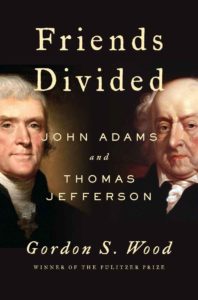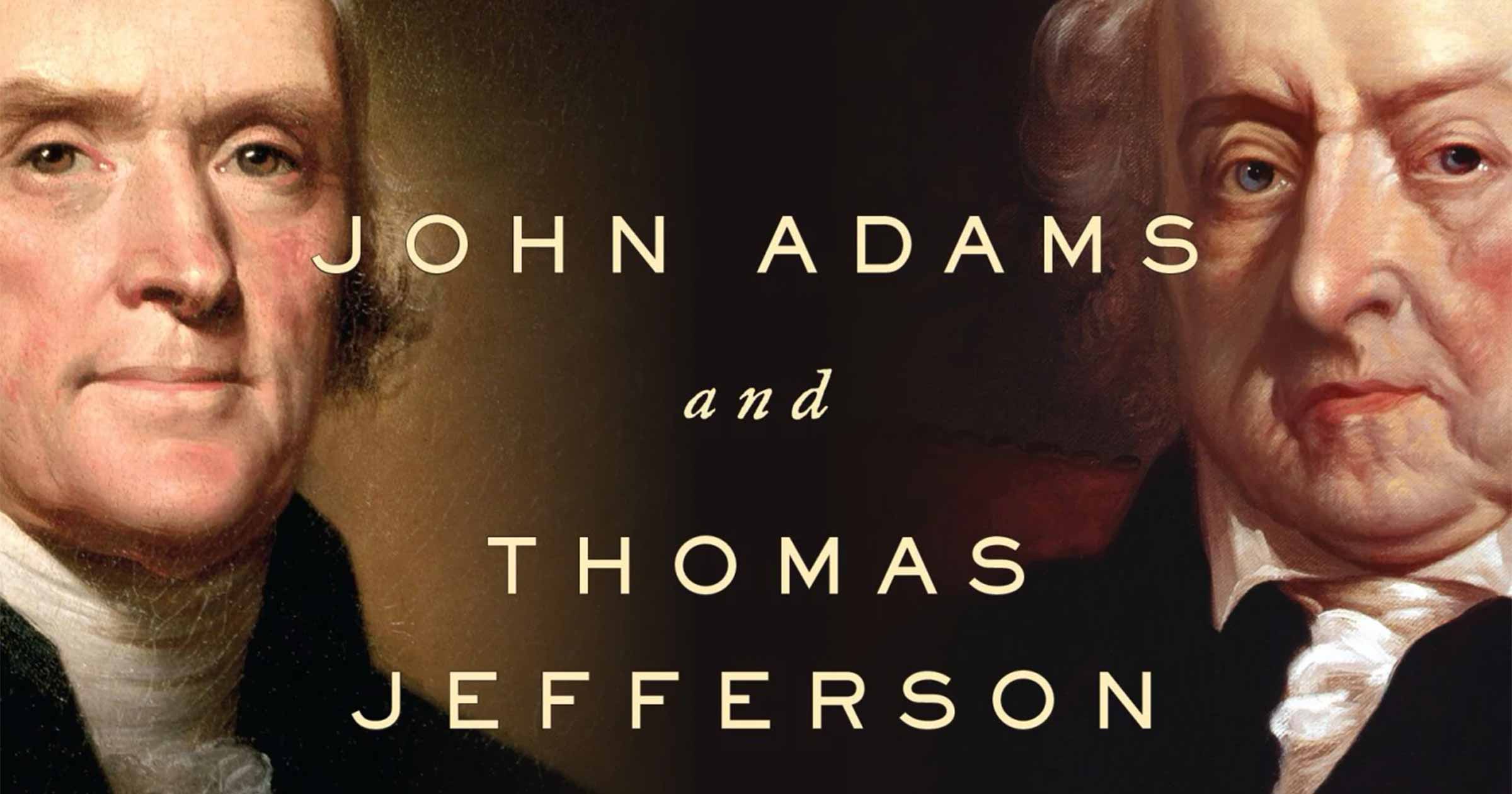 This 511-page book by Gordon S. Wood is what I call a “comparative biography”: a comparison and contrast of two contemporaries.
This 511-page book by Gordon S. Wood is what I call a “comparative biography”: a comparison and contrast of two contemporaries.
John Adams and Thomas Jefferson could hardly have been from more different backgrounds: Adams was a relatively poor New Englander from the “common” class and rose to prominence due to his law practice and writings, while Jefferson was born into the wealthy Virginian society and owned slaves his entire life.
Despite their drastically different beginnings, they both served as emissaries to France, served under Washington during his presidency, and served as President themselves.
They held opposing viewpoints on how the government should act (Adams favored monarchist traditions, while Jefferson adamantly believed in democratic methods) and attacked each other in the press so much that for a period of years, they stopped communicating altogether. After Jefferson’s presidency, a mutual friend (Dr. Benjamin Rush) convinced them that they should mend their relationship, and they continued writing to each other for the rest of their lives, finding much where they could agree.
One of my favorite things about this book is how it delves into explanations of the current political situation. For instance, it explained the English political system and the tension between the king and Parliament for sovereignty.
It also discussed Adams’ and Jefferson’s viewpoints on the strength of representative bodies vs. the executive, and Adams’ increasingly-peculiar views on representation and monarchy.
The book ends with a comparison and contrast of the two statesmen’s legacies, specifically how their overall beliefs have impacted how we view them today.
America is not a nation based on ethnicity, but rather based on ideas, specifically the principle that “all men are created equal.” In 1858, Lincoln observed that “half the American people…had no direct blood connection to the Founders of the nation.” But Americans—both native-born and immigrants—do have a “set of beliefs that through the generations have supplied a bond that holds together the most diverse nation that history has ever known.…To be an American is not to be something, but to believe in something. And that something is what Jefferson declared.”
I thoroughly enjoyed this book and highly recommend it, both for the biographical content and the explanation of the politics in the formative days of our country. It definitely helps explain why Adams is the “forgotten” founding father.

